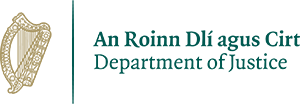In This Section
Introduction
You may apply for an unpaid internship visa for less than 90 days if it is a requirement of your studies. An internship of more than 90 days must be paid. See when and how you can apply and other important information below.
Who can apply?
If you are required to do unpaid work experience (an internship) as an essential part of your college or university studies you may apply for an internship (unpaid) visa to travel to Ireland – under the following conditions:
The internship can be for up to 90 days. You cannot get a visa to undertake an unpaid internship of more than 90 days.
It is possible to have a paid internship of more than 90 days.
When you can apply?
You can apply for an internship visa up to 3 months before your date of travel to Ireland.
If you are visiting another state prior to travelling to Ireland, you must have the relevant visa for that state in your passport before applying for an Irish visa.
How to apply
Answer all questions in AVATS fully and honestly. You should:
When you have completed the online application process, you must follow the instructions on the summary application form that is created by the online system. The summary form will contain information on where you are to submit your supporting documentation.
You must print, sign and date the summary form which must be submitted with your supporting documentation.
You may be required to provide your biometric information as part of the application process.
A guide to supporting documentation is set out below.
Fees
Please refer to the table of visa fees for information on the fee that you may be required to pay. Some applicants do not have to pay the visa fee and details are in the previous link. You may be required to pay other charges, for example relating to the submission of your documents.
You may be able to pay the fee in local currency. The website of the visa office, embassy or consulate, detailed in the summary application form, will have details about additional charges and local payment options.
Activities not permitted with this Visa
You are not permitted to:
Supporting documentation
The documents required below are important because they provide information about your personal circumstances in the country from which you are applying. It is your responsibility to satisfy the visa officer that a visa should be granted for the purpose sought.
The submission of any or all of these documents does not guarantee that your application will be successful. Original documents must be provided. If you submit a document that is not in English or Irish, it must be accompanied by a full translation. Each translated document must contain:
All letters submitted from a business, company or other organisation must be on official headed paper and show the organisation’s:
The visa officer considers each application on its merits and may request additional information or documentation.
Please note: Your signed and dated summary application form and the appropriate fee (where applicable) must be accompanied by the supporting documentation set out below.
If you do not submit the required documentation your application may be refused on the basis of insufficient documentation.
Guide to supporting documentation
“Any State issued official documents, such as Birth Certificates, Marriage Certificates, Death Certificates, Divorce Certificates that were issued by a State outside of the EEA or Switzerland, must be attested/apostilled as genuine by the Ministry of Foreign Affairs in the State that issued the document, in order that it can be accepted as evidence for Irish visa purposes. Such documents are required to be translated into English or Irish, if necessary. Translations done outside the EEA or Switzerland must also be attested/apostilled as genuine, by the Ministry of Foreign Affairs in the country in which the translation occurs. Send us both the original documents and the certified translations. Translations done in the EEA or Switzerland do not need to be attested by the Ministry of Foreign Affairs.
Any State issued official documents, such as Birth Certificates, Marriage Certificates, Death Certificates, Divorce Certificates that were issued by a State within the EEA or Switzerland do not require to be attested as genuine from Member States. A translation of these documents is not required where a multilingual standard form (MSF) is also provided. Such MSF forms are available from Member States on request. If an MSF is not provided by you then those documents are required to be translated into English or Irish, if necessary in order that it can be accepted as evidence for Irish visa purposes. Translations done outside the EEA or Switzerland must also be attested/apostilled as genuine, by the Ministry of Foreign Affairs in the country in which the translation occurs. Translations done in the EEA or Switzerland do not need to be attested by the Ministry of Foreign Affairs. We will also accept the Extract of a European marriage certificate, issued in accordance with the “Convention on the issue of multilingual extracts from civil status records“, as proof of a marriage within the EEA or Switzerland. Send us both the original documents and the certified translations.”
Return of documents
All documents submitted with your application must be original. We will return marriage, birth and death certificates to you after your application is processed. If there are other documents you want returned, type or write a list of the documents you want and:
Your application may be refused if you do not submit all documents. Even if you submit everything required, there is no guarantee that a visa will be granted.
Send your documents
When you are satisfied that you have prepared your application documents, put them into a strong padded envelope and send them to your application office. If you are making a visa application for yourself and another person, you may send them together.
To send together:
Be sure to pay the correct postage for large packages.
After you apply
When we receive your application, we will check that you have included:
When reviewing your application we may contact you to ask for more information or documents. We may also:
Biometric Information
In some cases, you may need to provide biometric information as part of your application.
Contact your application office (as listed on your application summary sheet) to find out if you need to provide biometric information and how to do so.
Visa Decisions
Where to check your visa decision
Dublin visa office
If your application was sent to the Dublin visa office, new visa decisions and waiting times are published every Tuesday.
All other offices
If you send your application to an international visa office, Irish Embassy or Consulate, contact that office for an update on your application.
If your visa is approved
An Irish visa will be placed into a blank page of your passport or travel document.
Your passport or travel document and certain original documents (for example: marriage, birth or death certificates and other documents listed by you) will be returned to you by post or arranged for collection at an international visa office, Irish Embassy or Consulate.
If your visa is refused
You will be sent a ‘letter of refusal’ that explains why your application was not approved.
Your passport or travel document and certain original documents (for example: marriage, birth or death certificates and other documents listed by you) will be returned to you by post or arranged for collection at an international visa office, Irish Embassy or Consulate.
Appeal a visa decision
You can appeal a negative visa decision at no cost. To do so, you must submit an appeal within 2 months of the date on your letter of refusal.
When you travel
An Irish visa allows you to travel to Ireland. It does not give you permission to enter the country.
You can be refused entry even if you have a visa.
Border Control
When you arrive at border control you must prove that you have a valid reason for entering Ireland to the immigration officer.
You will need your passport, visa and other documents. For example, you should bring copies of documents from your application with you when you travel. Here is more information about what to expect at border control.
If you cannot satisfy the immigration officer, you will not be allowed into Ireland. If you are given permission to enter, the officer will place a ‘landing stamp’ in your passport. The landing stamp shows the reason for your visit (for example, business, work) and how long you can stay, up to a maximum of 90 days.
Leaving Ireland and returning home
The time period you are permitted to stay in Ireland is shown on the landing stamp in your passport. You must leave the country before your permission expires. It is against the law to remain here without permission.
Extend a stay for unforeseen circumstances
In exceptional circumstances, you may apply to extend your permission to stay in Ireland. To apply for an extension, the circumstances of your visit must change in an unexpected way after you arrive in Ireland.
An extension will not be granted to extend the period of your internship. You must be in Ireland to apply and submit an application before your existing permission expires.
Visas for young people (aged under 18)
An internship application for a young person (aged under 18) should be made by their parent or legal guardian. The process follows the same steps described above with some extra conditions (as below) to protect the young person’s safety.
An Irish visa issued to a young person aged under 18 will show if they are travelling alone (unaccompanied) or with an adult (accompanied). Read a longer description of Irish visas issued to young people and the conditions that apply.

